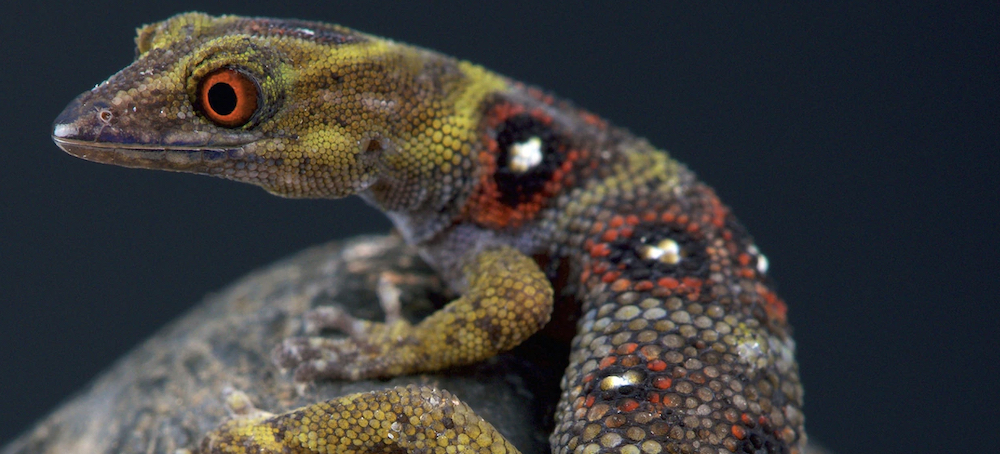Rare, Critically Endangered Gecko Making Dramatic Recovery in Caribbean
Maxwell Radwin Mongabay A Union Island gecko. (photo: Matthijs Kuijpers/Minden Pictures)
A Union Island gecko. (photo: Matthijs Kuijpers/Minden Pictures)
The Union Island gecko (Gonatodes daudini), known for its jewel-like markings, has seen its population grow from around 10,000 in 2018 to around 18,000 today — an increase of 80%.
The gecko resides in an approximately 50-hecatre (123-acre) swath of old-growth forest on Union Island, part of St. Vincent and the Grenadines. When it was discovered in 2005, the animal almost immediately became the target of exotic pet collectors, according to Fauna … Flora International (FFI), a wildlife conservation organization focused on protecting biodiversity.
The organization worked with Re:Wild and local partners like Union Island Environmental Alliance and St. Vincent and the Grenadines forestry department to develop a species recovery plan, which involved greater protected area management and expansion as well as anti-poaching patrols and camera surveillance.
The gecko’s wild population had shrunk to one-fifth its original size since being discovered. One 2017 study found that it was the most trafficked reptile from the Eastern Caribbean.
“As a Unionite and a community leader, I am extremely proud to be a part of this success story,” Roseman Adams, co-founder of the local Union Island Environmental Alliance, said in a press release. “Without a doubt, our shared, unwavering dedication and sacrifice has brought us this far. We now have to be entirely consistent with further improvements in our management and protection of the gecko’s habitat for this success to be maintained.”
In 2019, the government of St. Vincent and the Grenadines also managed to list the Union Island gecko on Appendix I of CITES (the Convention on International Trade in Endangered Species of Wild Fauna and Flora), meaning the species now has the highest level of protection against exploitation and illegal trade. It gives authorities around the world the power to take concrete legal action against poachers and international traders.
“It is truly a testimony to the determination of the Forestry Department — and the amazing community wardens on Union Island — that this gecko has become one of the best guarded reptiles in the world,” Jenny Daltry, Caribbean Alliance director for Re:wild and FFI, said in the release. “This is something for which the whole community of Union Island can be rightly proud.”
The island, with its well-preserved tropical dry forest and coral reefs, has a host of endemic species in need of protecting, including Caribbean diamond tarantula (Tapinauchenius rasti) and the Grenadines pink rhino iguana (Iguana insularis insularis).
“If not properly managed, the development of Union Island not only puts the future of the gecko at risk, but will impact a large number of other threatened species that are endemic to this area,” said Isabel Vique, FFI’s program manager for the Caribbean.
Citation: Noseworthy, J. (2017) Cold-blooded conflict: tackling the illegal trade in endemic Caribbean island reptiles. MPhil thesis, University of Cambridge, UK



